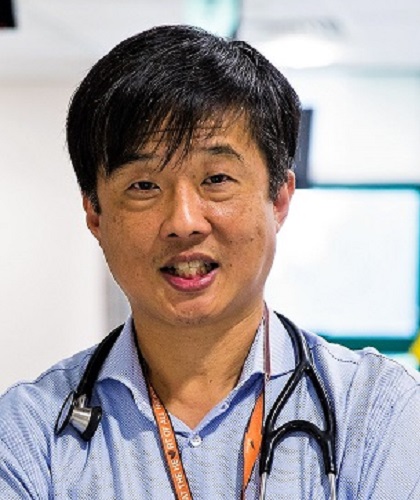
Han Chong TOH
Senior Consultant and Deputy Chief Executive Officer (Strategic Partnerships)
Division of Medical Oncology, National Cancer Centre Singapore
https://www.nccs.com.sg/profile/toh-han-chongBiography
Dr Toh Han Chong is the Deputy Chief Executive Officer and PI of the Laboratory of Cell Therapy and Cancer Vaccine at the National Cancer Centre Singapore (NCCS), where he also practices as a Senior Consultant Medical Oncologist. Dr Toh was appointed as an adjunct PI at SIgN in 2019, where his lab is a keystone of the collaborative effort to create synergies between clinical and scientific research initiatives in Singapore, with the objective of enabling new immunotherapeutic breakthroughs for patients with especially virally-driven cancers (VDCs) and solid tumours in general.
Dr Toh graduated from the University of London, UK, with an Intercalated Bachelor of Science in ‘Infection and Immunity’ from St Mary’s Hospital Medical School and qualified as a medical doctor from University of Cambridge, UK. He received his medical oncology fellowship training at the Singapore General Hospital, and at the Massachusetts General Hospital, Harvard Medical School, Boston, USA. He then completed a research fellowship in cancer immunotherapy at the Center for Cell and Gene Therapy, Baylor College of Medicine, Houston, Texas, USA.
In recognition of his pioneering work in cancer immunotherapy spanning over 15 years, Dr Toh was awarded the National Outstanding Clinician Scientist Award. He is the founding chairman of the Singapore Cancer Immunotherapy Consortium and holds faculty appointments at Duke-NUS and in the European Society of Medical Oncology.
Dr Toh currently helms a multi-institute collaborative effort under the umbrella of the VICTORY (Virus-Induced Cancers: Translational Oncology Research and immunologY) Large Collaborative Grant to comprehensively identify mechanisms of immune evasion and suppression in VDCs that frequently occur in the Asia-Pacific region towards improving outcomes of VDCs.
Our lab conducts cancer immunology research that impacts the entire translational and clinical continuum of virally-induced cancers from the diagnosis through treatment and follow-up. We do biomarker discovery for patient prognosis, foundational research to understand molecular drivers of tumour-immune interactions for rational targeting using small molecules and biologics, and also conduct phase I-III clinical trials with immune checkpoint blockade inhibitors, cell-based therapies, and anti-inflammatory drugs.
At SIgN, our lab focuses specifically on dissecting the immune profile of the tumour microenvironment in VDCs to gain insights into the mechanisms behind immune suppression and resistance to immunotherapy in VDCs. To understand the fundamental biology underlying the insights gained from comprehensive analyses of patient data, we also collaborate strongly with other immunology experts at SIgN to develop novel experimental models for hypothesis testing and mechanistic studies.
We and our collaborators are actively searching for biomarkers that could potentially be used to stratify patients for immunotherapy or that might be predictive of patient response to immune checkpoint blockade (ICB) therapy. We use high-dimensional technologies such as single-cell RNA-sequencing and high-parameter flow cytometry to perform deep immunophenotyping of clinical patient cohorts for biomarker discovery and to uncover potential mechanisms of immunosuppression.
PUBLICATIONS
A*STAR celebrates International Women's Day

From groundbreaking discoveries to cutting-edge research, our researchers are empowering the next generation of female science, technology, engineering and mathematics (STEM) leaders.
Get inspired by our #WomeninSTEM
